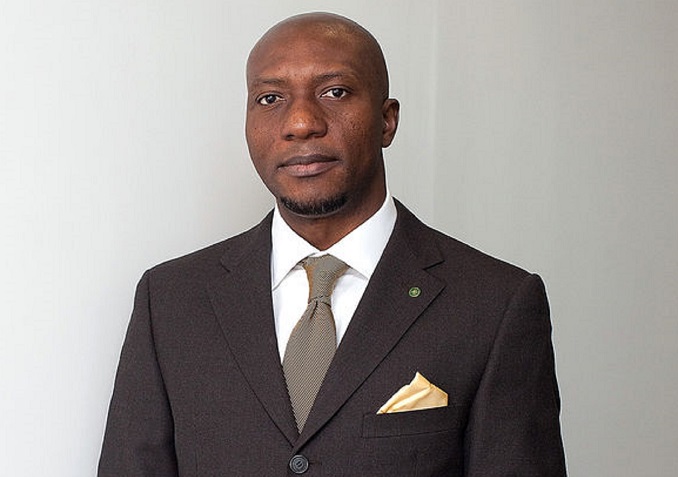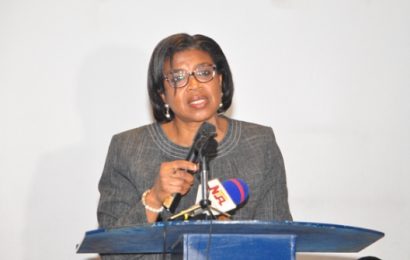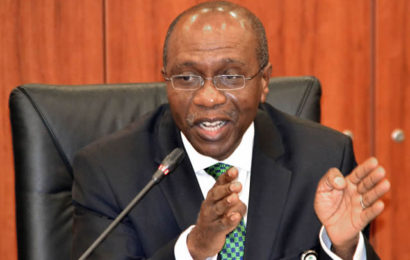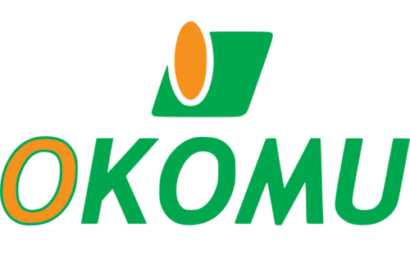
Despite varous economic challenges associated with the global Covid-19 pandemic, the Nigerian Stock Exchange (NSE) has demonstrated its resilience by maintaining seamless trading activities and business operations, the Chief Executive Officer, NSE, Oscar Onyema has said.
According to Onyema, NSE also providing support and guidance to market stakeholders navigating “the new normal”, and deploying resources and strategies to support the fight against Covid-19.
He explained that as at November 2020, “the total market capitalisation of the NSE is up by 27.12%, reflecting the myriad of new opportunities available on the bourse.
In an interview published in the current edition of World Federation of Exchange (WFE) and obtained by City Business News (www.citybusinessnews.com), Onyema said: “The outbreak of the novel Coronavirus Disease (Covid-19) in China and its rapid spread across the world, radically altered growth expectations for the year. In Nigeria, growth projections for 2020 sank to -4.3% (c.f. 2019: 2.2%), following restrictions on movement (and consequently, economic activities) in the wake of the pandemic, as well as lower oil prices, global supply shocks and lower consumer demand. At the same time, the NSE witnessed significant sell-off pressures as the pandemic caused high levels of volatility in global markets.
“In the face of the global pandemic, the NSE has demonstrated its resilience by maintaining seamless trading activities and business operations, providing support and guidance to market stakeholders navigating “the new normal”, and deploying resources and strategies to support the fight against Covid-19. As at November 2020, the total market capitalisation of the NSE is up by 27.12%, reflecting the myriad of new opportunities available on the bourse.
“Due to the pandemic, the NSE has implemented a number of measures to ensure business continuity and market integrity, thanks to our investments in business innovation and technology. These include the activation of remote trading and work-from-home protocols, transition to digital stakeholder engagement forums, and provision and amendment of regulatory guidelines for issuers and dealing members, amongst others. Capital raising activities have continued in our market with over 1 trillion naira raised by governments and corporates across various asset classes in the last 10 months”.
What has the pandemic taught you that you didn’t know pre-Covid 19? What’s the most lasting change that 2020 has brought?
I would say that the COVID-19 pandemic reminded me of some things and reinforced certain business principles.
The first of the lessons in 2020 for me has been the importance of communication. Going into the lockdown, we knew it would be critical to ensure that our stakeholders were assured that they would still be able to conduct business virtually. We immediately issued statements to our various stakeholder groups – including dealing member firms, issuers, employees, regulators and the general public – highlighting the steps we had taken to ensure a seamless remote experience. Via our digital platforms, I send a weekly CEO message to all my colleagues to keep them abreast of developments within. I have found that this constant communication between the exchange and its stakeholders has built trust and confidence in our abilities to not only withstand a crisis, but to thrive.
Another notable lesson I have learnt is the privilege of preparedness. At the exchange, our risk management framework is hinged on global standards like the COSO ERM 2017, and ISO 31000:2018, while our business continuity management system aligns with the leading global standard and industry best practices, like the ISO 22301:2013, by the British Standard Institute (BSI). These frameworks and systems enabled us to identify the existential threat of the Covid-19 pandemic even before the government announced its policies and embarked on a lockdown.
The most lasting change that 2020 has, however, brought would be flexibility. We have not only better harnessed the power of technology, we have explored new dimensions and ways of doing things that I am confident will make for a richer and more valuable experience at the exchange going forward.
What was your most important project this year (regulatory or otherwise) and did it change due to Covid-19?
I would have to say our biggest project this year has been the demutualisation of the exchange, which is now very close to completion. While the pandemic has incredibly altered how we work, we have continued to make progress with the planned demutualisation, thanks to the determination and resilience of our employees, members, regulators and other key stakeholders.
The process involved court approvals of the resolutions from the Court Ordered Meeting and Extraordinary General Meeting in March and were only able to receive the sanction from the Federal High Court in May 2020. We do expect to complete this process before the end of 2020.
Another notable project for us was the launch of the NSE Growth Board. With a total of 41.5 million micro, small and medium enterprises operating in Nigeria, the launch of the Growth Board is designed to encourage the listing of growth companies and provide them with a cost-effective platform to raise the capital needed to scale, attract investors, enhance corporate visibility and put in place a regulatory structure that fosters growth.
What was the biggest challenge for the leadership team? What were your (personal) best and worst moments of 2020?
Despite the high volatile macroeconomic environment in Nigeria, the exchange has remained resilient. Very recently, on November 12, the NSE experienced the highest daily trade in over five years at 6.23%, which triggered a 30-minute trading halt of all stocks for the first time since the NSE circuit breakers were introduced in 2016. I can certainly say this was one of my personal best moments of 2020.
The economic impact of the Covid-19 pandemic has, however, become increasingly apparent in the secondary market with a persisting “flight to safety”. Furthermore, in terms of primary market activity, the pandemic continues to render ambitions of prospective issuers to go public, highly uncertain, in terms of timing and valuations, with no IPOs on the NSE in 2020. According to the World Federation of Exchanges, the total number of new listings through IPOs and investment flows through IPOs fell by 36.5% and 42.7% respectively in first half of 2020, compared to the second half of 2019.
What do you see as the key themes for 2021?
The COVID-19 pandemic has certainly hastened the reign of the technological or digital era. More than ever before, having the right tools that are easily adaptable for the fast-paced evolution of society is critical. It is no longer a matter of if you want to move with the times, but how quickly you will be left behind if you don’t. Companies are, therefore, expected to invest more heavily in business innovation and technology-based products and services that will allow them to reach stakeholders wherever they are in the world, and the exchange will be no different.
We also saw the rise of sustainability with increased launch of ESG related bonds. We expect the mainstreaming of sustainability in business conversations to continue.
Finally, we also expect to see an up-skilling of employees to adapt to the new ways of working and the emerging needs of stakeholders, as well as an increased focus on customer-centricity.






